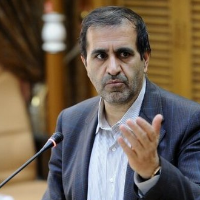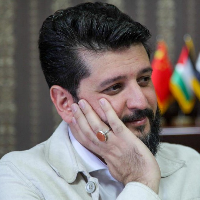Iranian Sociologists and Predicting Changes in the Family Institution in Iran(A Critical Study)
The increasing complexity and, as a consequence, the self-sufficiency and independence of institutions relative to social agents is one of the problems of contemporary societies. In the course of modernization, institutions attain an objectivity that is independent of their actors. This complexity of the community management process creates issues that necessitate a focus on the future and an ability to anticipate trends and processes. Prediction is one of the neglected scientific properties in Iranian sociology. In such a way that sociology in Iran has not made an endeavor in the past fourteen decades to predict the future of a particular institution or field change. Nevertheless, sociologists have made accurate predictions unconsciously. In contrast to the prevailing trend of sociology in the rest of the world, where the future of social institutions, including the family, has received more attention, sociologists in our country have studied a variety of social changes, including revolutions and social movements. This article seeks to analyze the Iranian sociologists' perspectives on the changes in the Iranian family as reflected in their writings, in order to classify and quantify their views on the future of the Iranian family.To answer the question posed above, “what predictions have Iranian sociologists made regarding the Iranian family in terms of marriage, family size, and divorce?” The most effective method is gap analysis, which was initially utilized in engineering and has since been adapted for use in market research.In Iran, there are two distinct perspectives on the future. The first model is the result of a decade’s worth of work by futurists, which has grown increasingly potent over the past five years. Sociologists have a unique perspective on the future. They have rarely claimed the ability to predict the future, but they have expressed concern about family-related future events. Among all sociological theories, two instances can be stated with clarity. First, none of them have claimed to be able to predict the family’s future, even if they have done so in the past. Next, none of them employed conventional futuristic methods in today’s world. Yet, a substantial portion of future researchers’ research methods are derived from sociology as well. Sociology is a diverse tradition in contemporary world studies of the future. In the sphere of method, however, those who discussed the future of the family did not explicitly mention the futuristic method.Contrary to popular belief, Iranian society can be foretold through survey research. This is also evident in the realm of the family.
-
Short-term architecture of Qajar period houses: content analysis of Europeans' travelogues
MohammadReza Javadi Yeganeh, Hosna Esmaeelbeigi *, Hamed Mazaherian
Journal of Community Development, -
The confrontation between the two sides of death and native identity from the perspective of Martin Heidegger
*, Mohammad Ameli
Sociology of Art and Literature, -
The narratives of female students’ experience of the quality of identity changes
M. Aghasi *, Z.S. Rooholamin
Iranian Journal of University Studies, -
Structural Equation Modeling Factors Affecting Styles and Values and Components of the Circular Structure of Schwartz Values
Farahnaz Pirooz, *, Shahla Kazemipour
Journal of Islamic Lifestyle Centered on Health,



